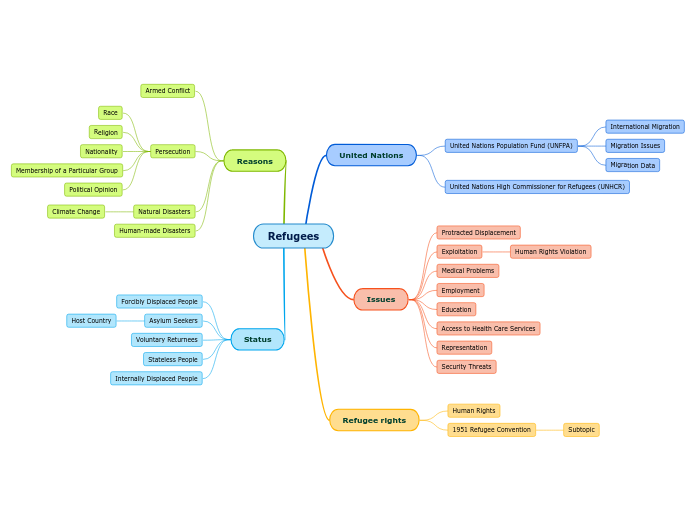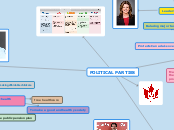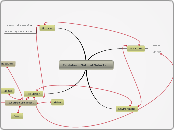geography
Type in the name of the novel and movie you are going to compare and contrast.
Example: Great Expectations.
transport
impact of transport systems
(S.E.E.P.)
increased mobility for elderly &
people with disabilities
safety risks
health risks
traffic congestion
impacts
increase carbon footprint
and worsens air quality
loss of productivity
-occurs when road usage approaches or exceeds road capacity
-tends to occur during peak periods when people are rushing to school or work in the mornings or evenings
noise pollution
sleep problems
increased heart rate
elevated blood pressure
hearing impairment
stress
changing physical envrionment
development of transport system
->require physical space
results in change of physical environment
impacts people who are dependent
on the environment
connectedness
when a transport system is in place, the
movement of people, goods and services,
cultures, become more accessible as they
are able to travel across geographical boundaries
more interaction with foreign cultures
more diversity and variety
goods and services are more accessible
and available worldwide
people are more mobile and it helps to
strengthen and maintain social relationships
quality of transport infrastructure
capacity
number of people/ goods
that can be transported
reliability
frequencies of breakdowns/delays
ease of reaching destinations
or activities.
when a location / place can be
easily reached by various modes
of transport, we say that this
location highly accessible.
environmental sustainability
environmental impact
convenience
ease of movement
frequency
number of occurences
of a service
coverage
availability and reach of
infrastructure
terminologies
route
connection between
two nodes
transport infrastructure
structures that facilitate
the flow of traffic
transport network
system of transport routes
connecting set of nodes
nodes
junctions and terminals
the greater the number of
routes and nodes, the greater
the network density
housing
Thesis
Characteristics
Which are the differences between the book and the movie?
Think of at least 3 differences. Type them in.
Examples regarding Great Expectations
- the movie plot leaves aside certain characters;
- the book is mostly narrated, while the movie story is told through dialogue;
- the movie has a different ending.
Which are the similarities between the book and the movie?
Type them in. Example: Great Expectations the book and the movie have very similar plots.
consequences of housing shortage
in cities
slums
low level of health due to
poor living conditions
vulnerability
environmental pollution
homelessness
poor health because of exposure to cold
or rain, hunger and lack of sleep which causes
skin infections, respiratory problems, stress disorders
reasons for housing shortage
limited land supply
competing land use
rapid population growth
high birth rates
natural increase (birth rate-death rate)
rural urban migration
pull factors->move to
push factors ->move away
geographical investigation
Restate your thesis while avoiding repetition.
Similarity
phase 2: during fieldwork
Restate the differences between the book and the movie.
data collection
phase 1: pre-fieldwork
Restate the similarities between the novel and the movie, but try to avoid repetition (this will help if you write an essay afterward).
plan timeline
consolidate eqiupment
decide on the method of data collection
compose guiding questions
suggest a hypothesis
choose a topic/research question
value
interested
do-able
potential
geographical concepts
scale
helps us understand geographical issue from different levels
place
space with special meaning
space
how people organise their buildings given their space
location
where
urban living
The introduction provides background information for both the book and the movie.
rural environment features
Create a thesis statement in which you briefly compare and contrast the book and the movie.
lack of telecommunications
higher percentage of employment in primary and secondary industry
limited transport networks, usually dirt roads
lack of amenities and facilities
short buildings
lack of activities
low population density
small population size
urban environment features
telecommunications
higher percentage of employment in tertiary and quaternery industry
transport networks like railways
amenities and facilities like hospitals, schools
many (tall) buildings
cosmopolitan city-multicultural, vibrant, activity
high population density
large population size
Type in the name of the main character.
This has to be the same for both the book and the movie.
criterias to classify a place
accessibility
types of industries
quaternery
providing info and expertise
tertiary
selling things, providing services
secondary
making things
primary
Is the action in the movie set in the same place?
Where is it set? Example: The action in Great Expectations (1946) by David Lean has the same setting as in the book.
taking raw materials from ground, growing things
amenities and functions
facilities
areas covered in concrete
type of buildings
population density
number of people divided by land area
In the book, where does the action take place?
Example: The action in Great Expectations the book takes place in 19th century England, London and Kent.
Body
Use point-by-point organization in the body section to present the characteristics briefly stated in the thesis.
This means that if you use this draft to write a compare and contrast paper, each characteristic will be introduced in a separate paragraph.
Characteristic
Movie
How is the movie different from the novel?
Type in a short explanation. Use 'like', 'same as' or 'similar' for comparison, and 'unlike', 'differ from' and 'although' for contrasting.
Book
How is the novel different from the movie?
Type in the answer. Use 'like', 'same as' or 'similar' for comparison, and 'unlike', 'differ from' and 'although' for contrasting.









